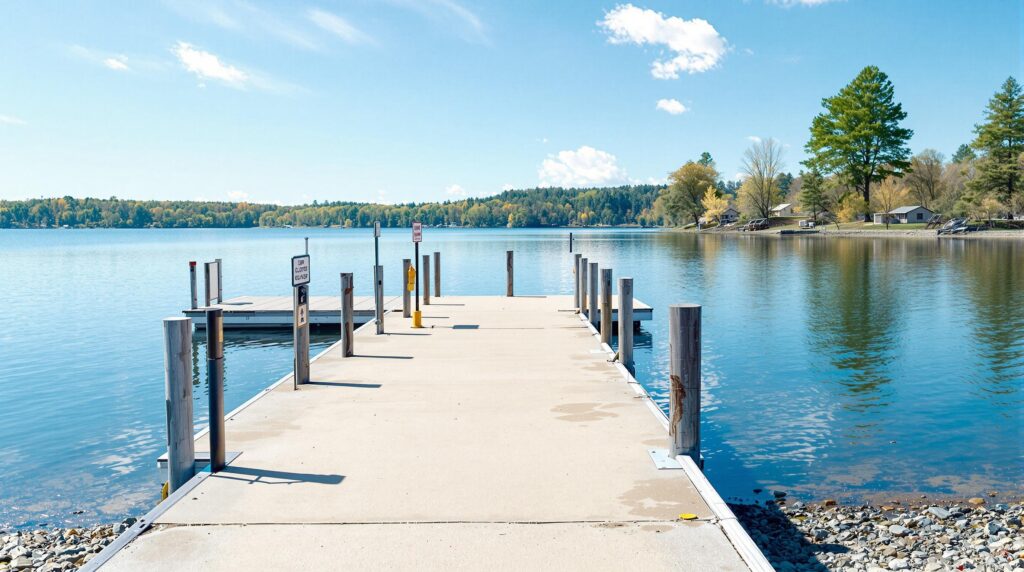Officials with the U.S. Army Corps of Engineers have announced an indefinite closure of Nancy’s Boat-to-Shore Campground at Raystown Lake in Pennsylvania ahead of the 2025 recreation season, citing staffing shortages related to federal workforce reductions highlighted in official updates. DOGE was established by executive action in January 2025 and operates under presidential directives, though no legislative confirmation has designated it a formal department.
In statements from the U.S. Army Corps of Engineers, officials emphasize that new executive mandates direct staff toward dam safety and emergency preparedness, reducing the seasonal workforce required for operating overnight campgrounds. Nancy’s Boat-to-Shore typically stays open year-round, while Seven Points and Susquehannock usually begin their seasons in April or near Memorial Day if adequate staffing is available.
Seven Points, considered one of the largest facilities in the region, and Susquehannock are both among the sites facing indefinite suspensions. Some notices estimate more than 300 Pennsylvania campsites remain offline, with about 125 closed at Tompkins Campground in Tioga County. These figures may shift if hiring limitations are relaxed.
Day-use activities, including beaches, trails, and picnic areas, continue to welcome guests, and concessions such as Seven Points Marina remain operational. Campers with existing reservations should receive automatic refunds through Recreation.gov, and any updates on campsite availability will be shared via email according to local guidance.
Matt Price, executive director of the Huntingdon County Visitor’s Bureau, has spotlighted the financial repercussions of staffing constraints. “To put it in perspective, the cost of hiring the necessary seasonal staff is around $400,000,” he said in an interview aired recently. “By failing to hire them, the government stands to lose three times that amount in revenue. It’s a case of cutting off your nose to spite your face.”
In the same interview, Price explained that the $1.2 million revenue figure reflects typical annual returns from campground operations. He added that while full-time employees remain available, those staffers are “too stretched to train the new hires” under current conditions.
According to Price, the closures stem from what officials term executive-order-driven directives limiting hiring. He suggested that if those measures are lifted in time, some sites might reopen during the 2025 season, but no definitive timetable has been set.
National data from an established outdoor hospitality association indicates that cross-training employees can reduce campground shutdowns caused by staffing shortfalls by roughly 30 percent. When team members are equipped to handle multiple roles, core services such as campground check-ins and daily site maintenance can continue with minimal disruption despite broader hiring restrictions.
One industry survey found that campgrounds lacking overnight capacity but offering day-use upgrades or virtual tours saw a revenue increase of about 15 percent. These strategies retained paying visitors and kept local tourist attention focused on the area, allowing some revenue streams to remain stable until full operations resumed.
Corps representatives have indicated that while there is no firm schedule for reopening Nancy’s Boat-to-Shore, shifts in hiring practices or budget allocations could prompt a reevaluation of the closures. Officials confirm that decisions depend on federal policy changes rather than local management preferences alone.
Industry observers point to flexible hiring methods and digital onboarding as effective ways to maintain campground continuity. By creating a broader pool of qualified applicants, managers can address workforce gaps arising from sudden cutbacks or delayed federal approvals.
For campgrounds grappling with indefinite closures, offering off-season storage possibilities and online engagement can help sustain business activity. Visitors remain interested through social media updates, newsletters, and special day-use opportunities, mitigating losses until regular operations can be restored.
Some operators also leverage loyalty incentives to encourage repeat visits once sites reopen. These efforts help strengthen traveler relationships and highlight alternative forms of recreation, ensuring that guests remain engaged even when federal staffing constraints limit standard campground services.
Officials involved with Raystown Lake encourage the public to follow recognized information channels and to contact representatives in Congress regarding budget and hiring reforms. Many remain hopeful about restoring normal activities by 2025, though everything hinges on wider governmental decisions likely to unfold in the coming months.








